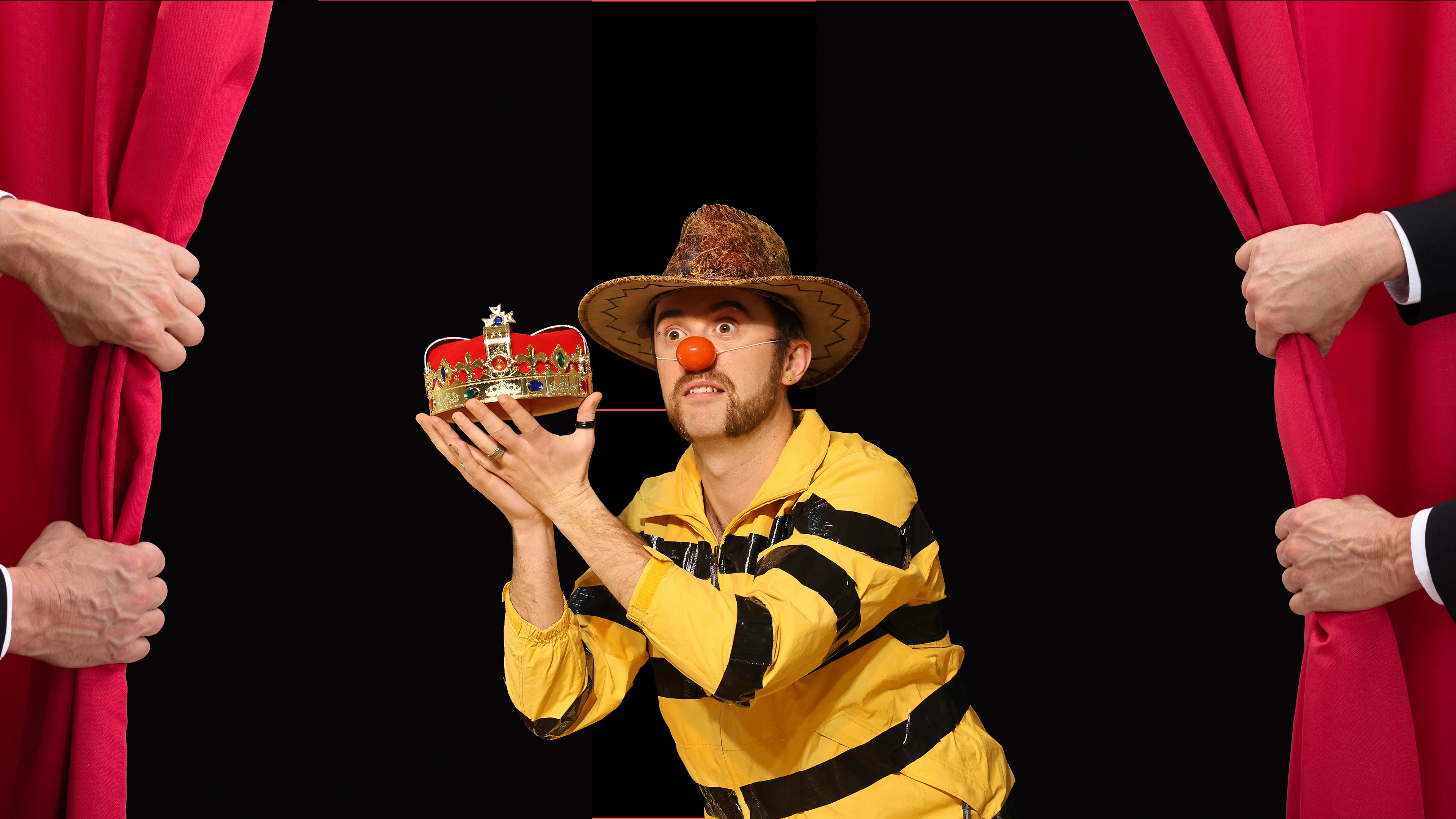
Taster Class In Clown Comedy
Theatre Deli, London
Learn More

by Viki Jackson
I previously shared my plan for getting into stand-up comedy. Here’s the next post which I cover what I learnt from my first gigs. Some of these may seem obvious but I’ve included them to have everything I consider important in one place.
After a busy day, sometimes the last thing I wanted to do was go out to a basement of a pub and do something I wasn’t 100% confident in. But it got easier as the gig numbers increased.
My energy was the main contender for if a gig was good or not. As my set was a high energy, enthusiastic character some days I had to really push myself to get into it. Again, as I worked through the gigs this became easier to switch into. I learnt a few "hacks" to get me in the mood (more on that in another post).
When you start off in stand-up you book "bringer gigs". People want to go and see comedians they know will make them laugh so newbie stand-ups need to make their own audience - other people performing that night plus the one friend everyone has to bring.This means the laughs can be distracted if someone is thinking about their set during yours. It's a different headspace to be watching a gig as a human vs watching a gig as a comic - you are more analytical so it’s harder to get you laughing. Although on the other hand, it may also mean you may be laughing a bit more vocally to be encouraging. Either way it's hard to tell if it's an authentic laugh and if the material is landing right. That's all before we get to the point about how hard it is to drag your friends along to your gigs, if you want to even show your set to friends in the first place. Side note: there are bringer swap schemes to help with this example here.
A MCs job is to warm up the room. And to reset the room if a set has gone badly. I've been to some nights where the room feels flat, no one is laughing. In fact, I've seen one act bomb (and frankly should have left the stage after the most ridiculously sexist material) and the room turn against the rest of the acts for the rest of the night. Its the MCs job to reset the room after that but at nights like this then MCs may just be starting out themselves so won't have the skilled experience to do so.If the night on a whole is going badly, it's good idea to take a step back, recognise what's happened and take the pressure off yourself and your set.
I'd stepped on stage and delivered the first few lines of my set when I caught eyes with someone in the front row who was not enjoying it. Their body language was negative and they sat glaring at me. My set isn't offensive (unless you don't like house plants?) so it can't have been something I’d done. Maybe they were just having a bad day? I had a split second to choose between my negative brain telling me I'm rubbish or my sensible brain telling me to ignore them. I chose my sensible brain and I decided if my material wasn't going to work, it wasn't going to work. I'd do my set but relax the structure and be a bit more free, a bit more improv. I actually had more fun this way, I dropped the need to recite my lines accurately and played around more. It wasn't my best set. It wasn't terrible but it wasn't great. But I learnt to relax the pressure and gained the experience of an audience member throwing me off - a win in my eyes!
There are so many things that could come into whether a set goes good or bad. Sarah Millican created Millican’s law, an infamous comedy rule, meaning you have until 11am the next day to feel angry or down about a bad gig and then you move on. I like this rule, although I prefer cutting it shorter and giving myself until I go to sleep. After my first ten gigs I kept booking in more gigs. This time switching around my set, how I wrote it and the character I was playing. I reflected on some of the more interesting experiences and decided to keep on going with the gigs for now. If you've found this interesting, I'd love to know in the comments along with any experiences you’ve had too. For now I'll leave you with this ... My top advice: get up there, have fun doing your set and move on once it's done. There's always another gig.

